Why grease can be great: Chemical engineering graduate helps put waste oil to good use
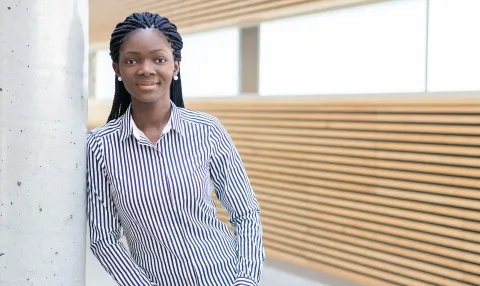
Whether it’s French fries on the menu or an entire deep-fried turkey, disposing of used cooking oil can be a headache. Only a small amount of it can be composted, and dumping the rest down the drain can result in blocked pipes. For university food services departments tasked with preparing food for thousands of students, the challenge of disposing used cooking oil is exponential.
Onyinye Ofulue, a chemical and biological engineering student with a passion for sustainability, has been helping tackle that challenge for her past three years at UBC. She joined and led a small student team—the UBC chapter of Engineers for a Sustainable World, or ESW—that collects waste cooking oil from UBC Food Services and converts it into a fatty acid-based fuel known as biodiesel, which can be used as fuel for diesel-powered vehicles.
“First, we clean up the oil at our lab in the chemical and biological engineering building, using physical oil filters to remove food particles,” explains Ofulue. “Then we convert the oil using a process called transesterification, using methanol with potassium hydroxide as a catalyst. We’ve processed over a thousand litres of oil and produced more than 250 litres of the biodiesel so far and it’s been used by one of the UBC housing services trucks that serve the campus.”
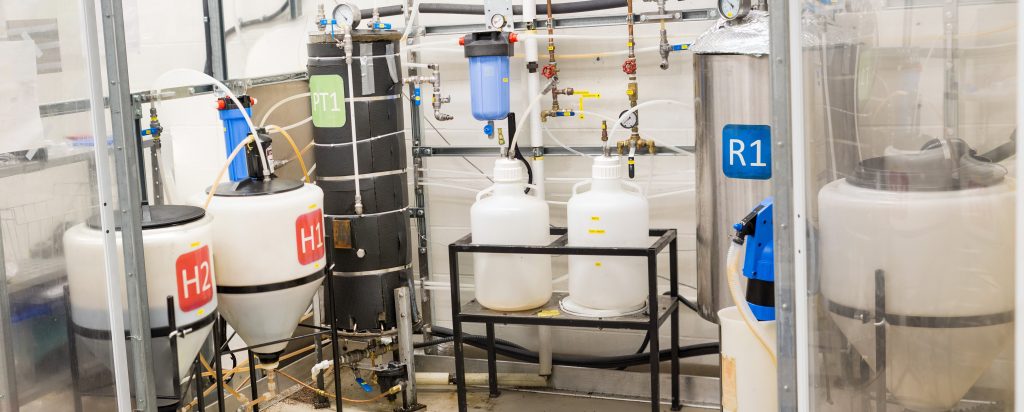
Cleaning cooking oil at the laboratory.
To ensure the safety of the students handling the biodiesel, Ofulue led the revisions of work procedures for operating the reactor and other equipment used to convert the waste cooking oil. She also ensured that the team members received adequate training for work safety.
For Ofulue, the main attraction of biodiesel is its lower environmental impact compared to pure diesel. Biodiesel can be carbon-neutral over its life cycle, and it has virtually no sulfur, making it less polluting.
There are two blends available: B5, consisting of five percent biodiesel and 95 percent diesel, and B20, consisting of 20 per cent biodiesel and 80 per cent regular diesel. Nothing is wasted – even the byproduct of the biodiesel conversion, glycerol, is turned to soap which the team uses to wash glassware in their labs.
After she graduates this May, Ofulue hopes to continue to work with the student team as an ordinary member. “The goal is to get the biodiesel certified so that we can make more of it. And hopefully, the project will continue to expand with the next generation of student leaders at ESW,” she said.
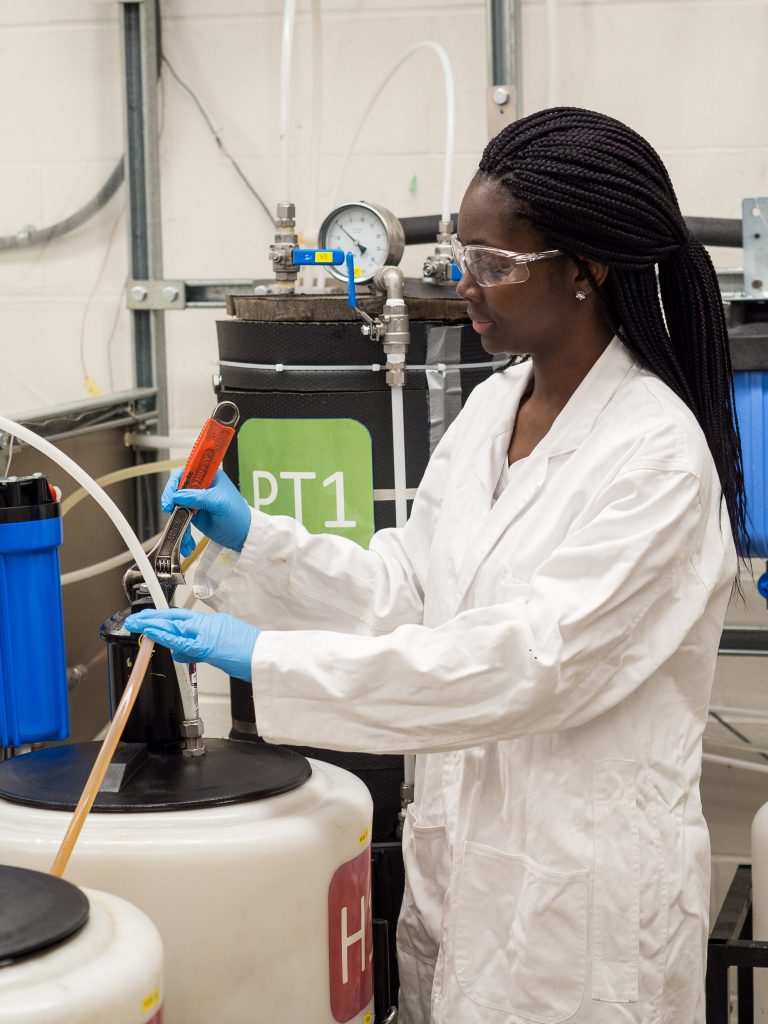
Onyinye Ofulue in the lab.
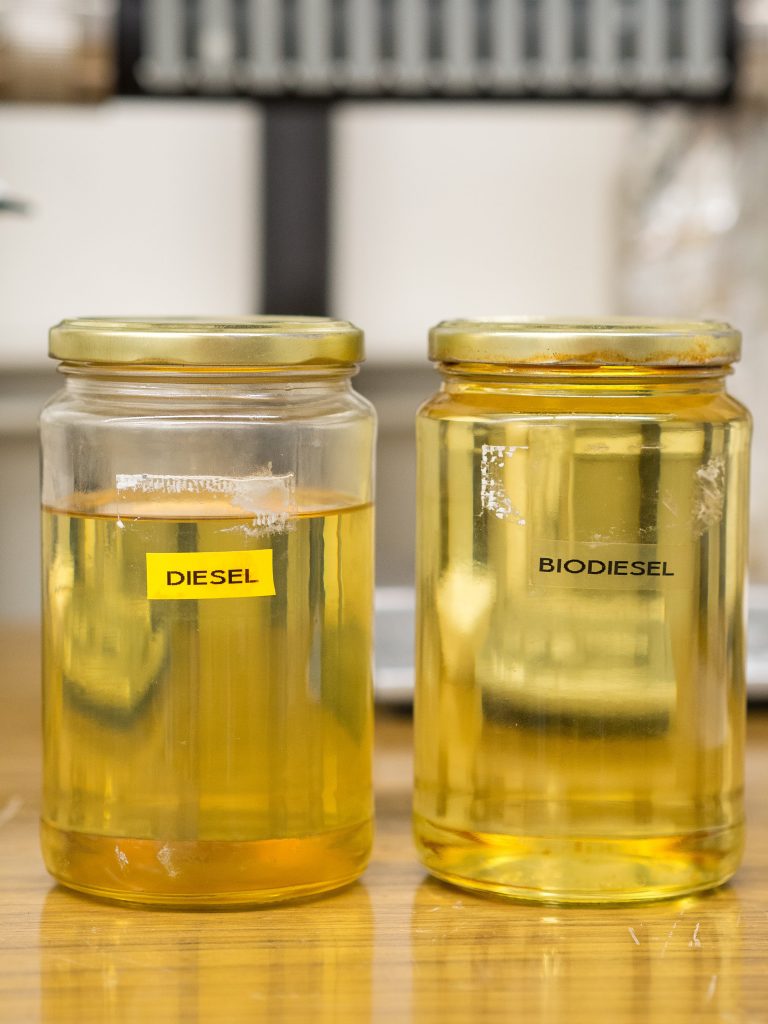
Diesel and biodiesel.
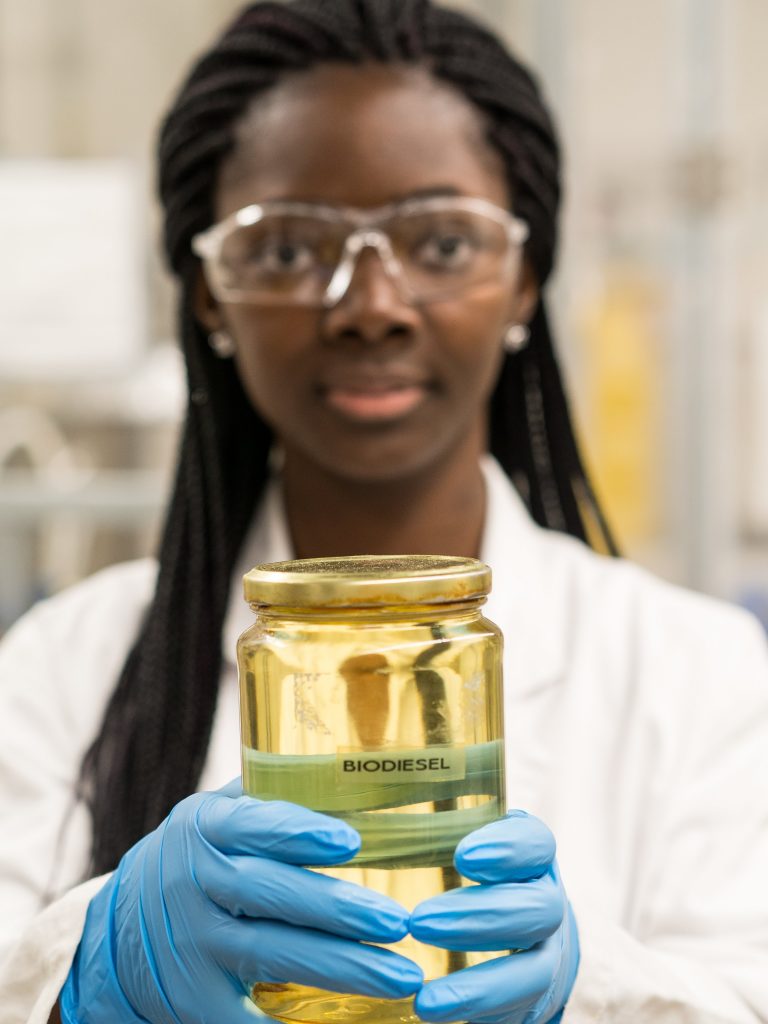
Onyinye Ofulue holds a jar of biodiesel.
Ofulue, who grew up in Lagos, Nigeria and moved to Canada five years ago for university studies, has fond memories of the class project that sparked her interest in sustainability.
“I was asked to do a presentation on renewable energy for my geography class, and that was the first time that I heard about solar and geothermal and wind power and what you could do with it. And then I went to UBC and I heard about the ESW club, so I joined the club and that started it all,” she recounted.
In Ibadan, Nigeria, she worked with Readers are Leaders, a book club to help primary to middle-school children improve their English skills. She continued her volunteer work in Canada, helping out at BC Cancer Society events and as a recruiter for Canadian Blood Services. At UBC, she devoted time to working with UBC student housing in welcoming new students to campus.
“I’ve been very blessed,” said Ofulue. “My family are all very much into education, my brothers and uncles studied engineering, and they’ve all encouraged me to chase my dream of becoming an engineer and making a difference in the world. I look forward to using my education and my experience with the biodiesel project to continue contributing to my community.”